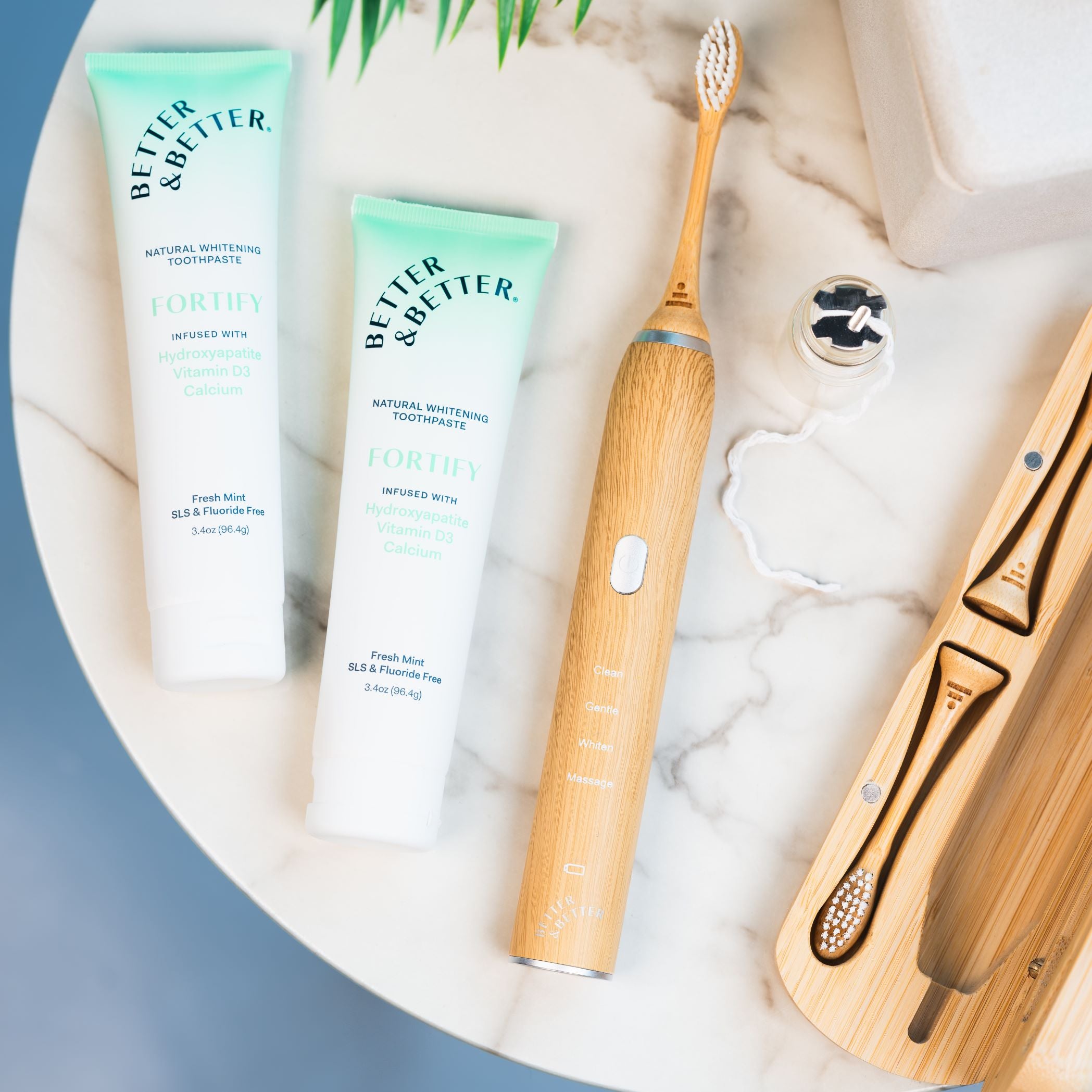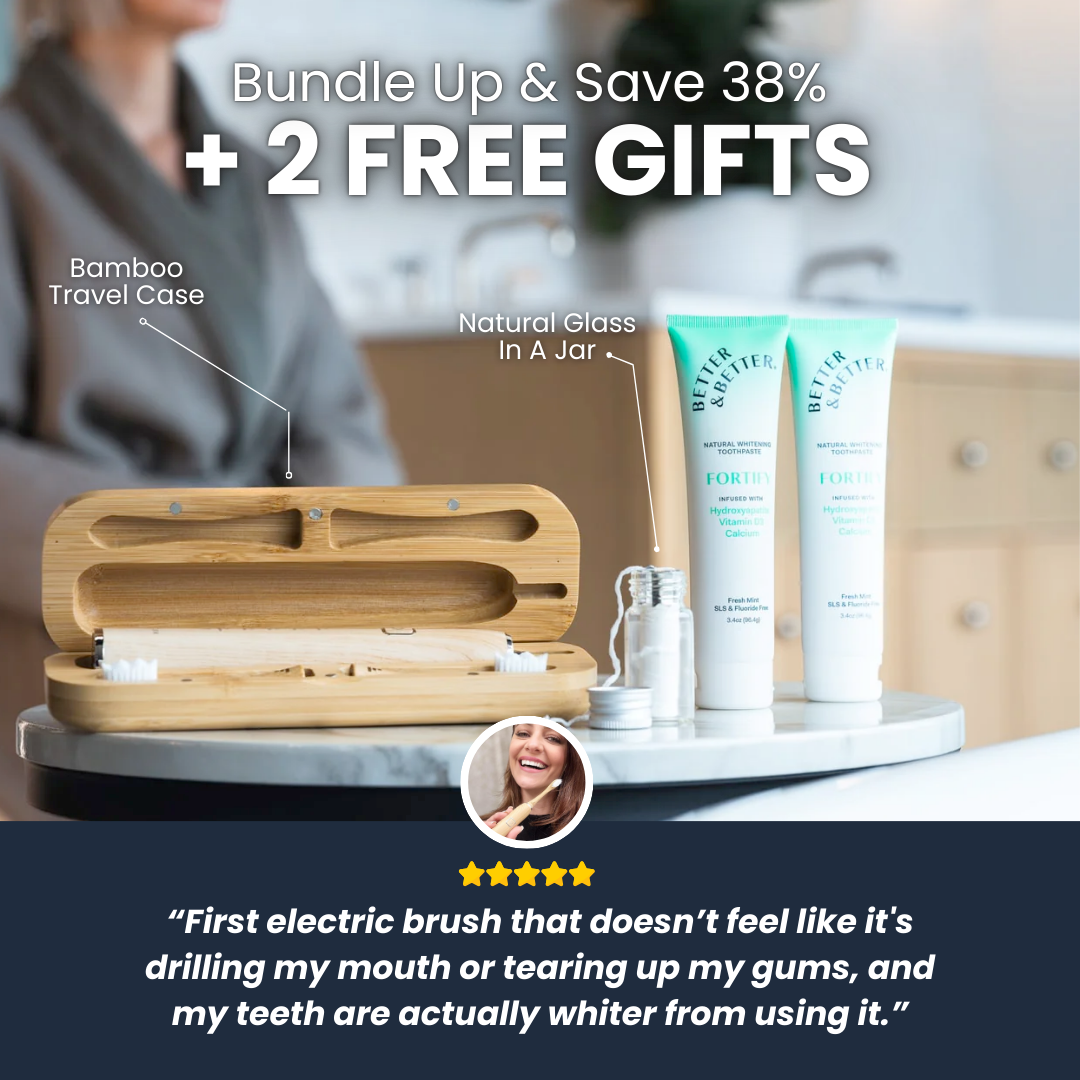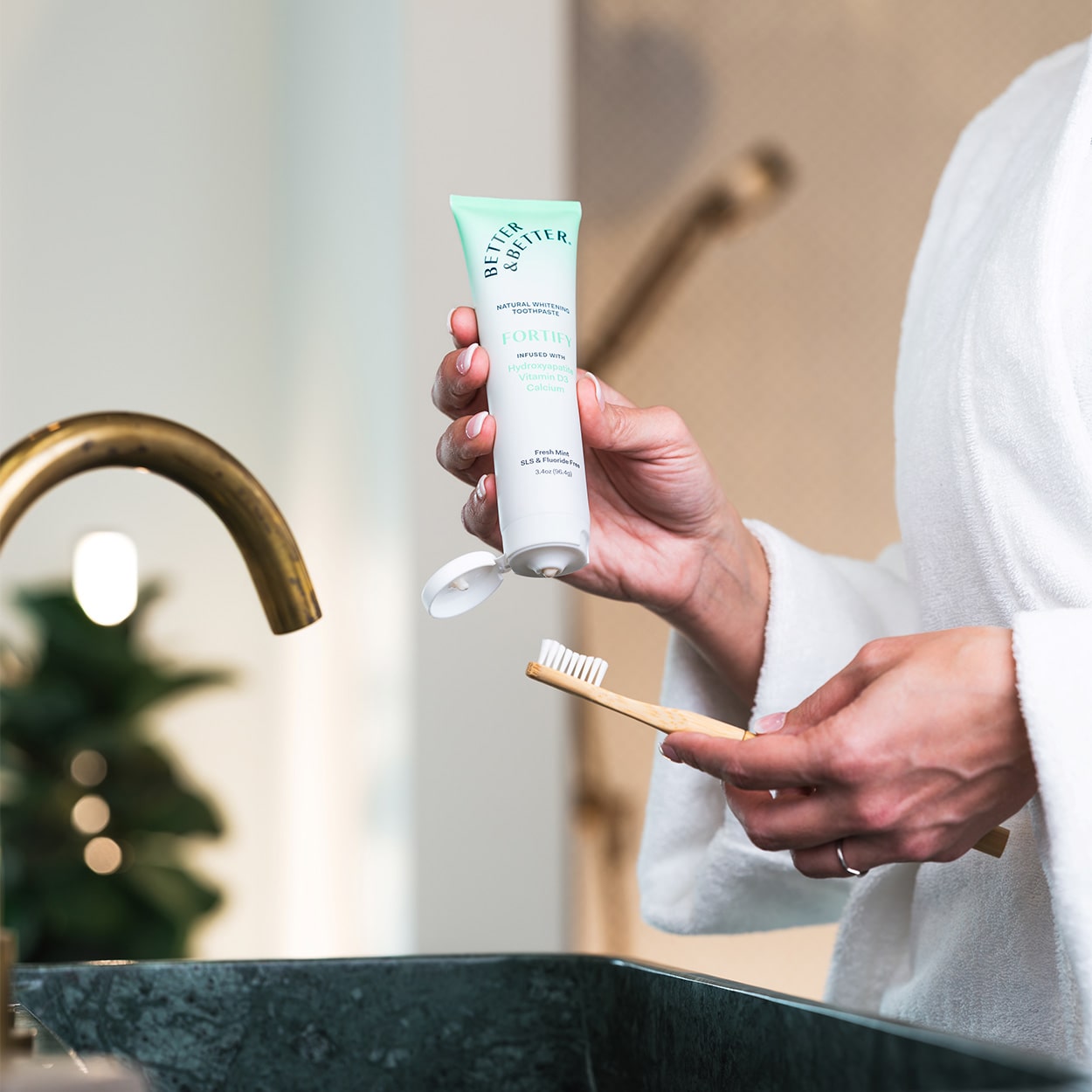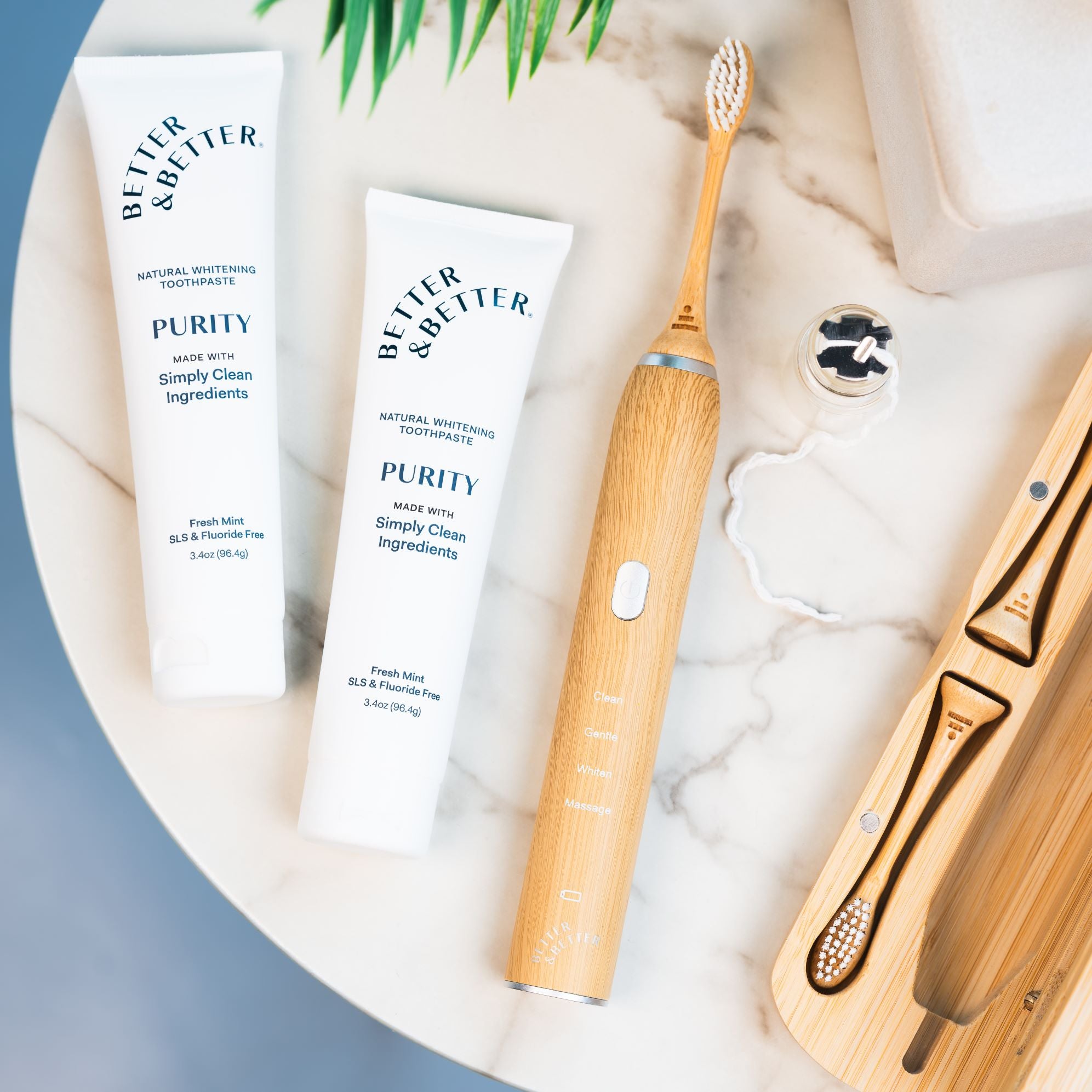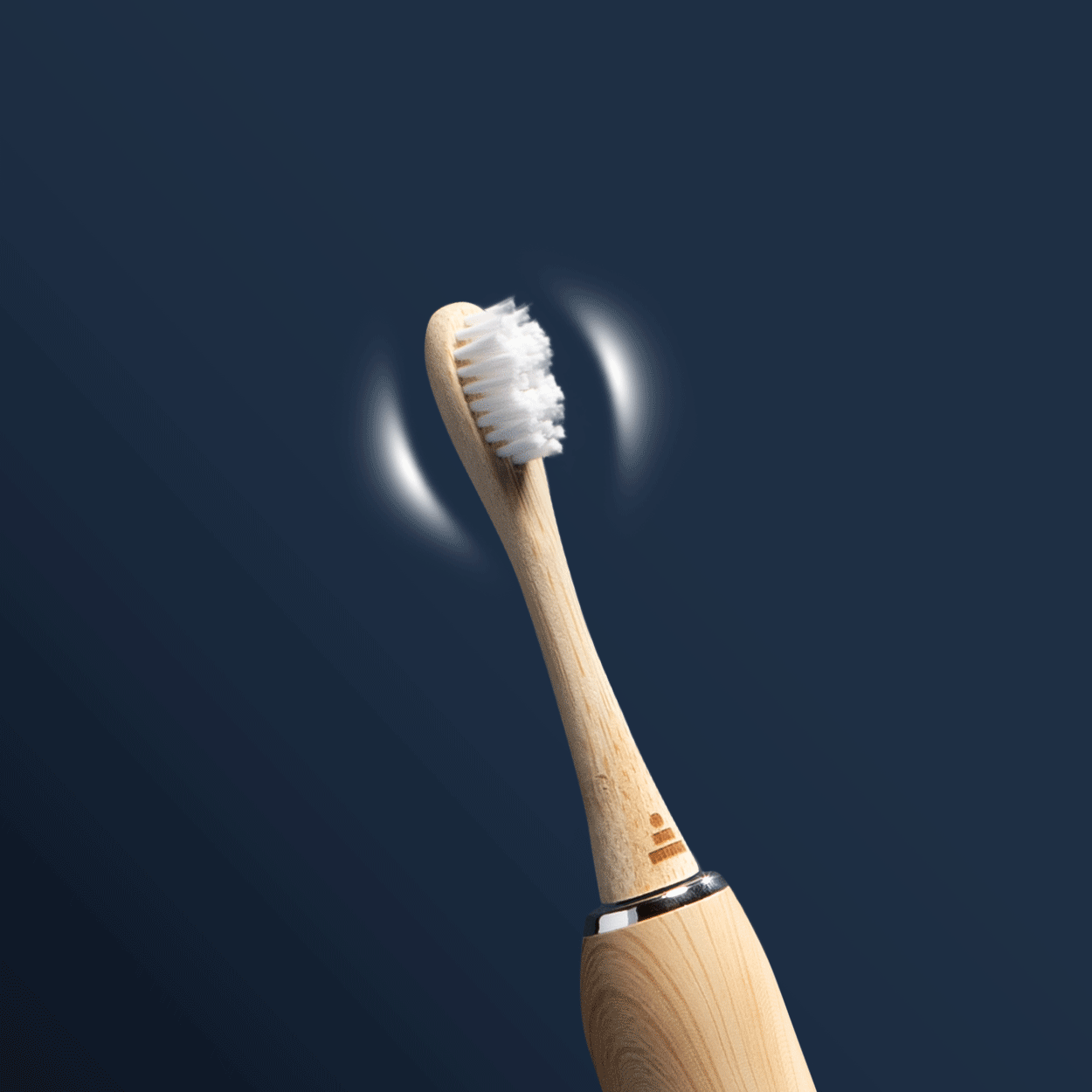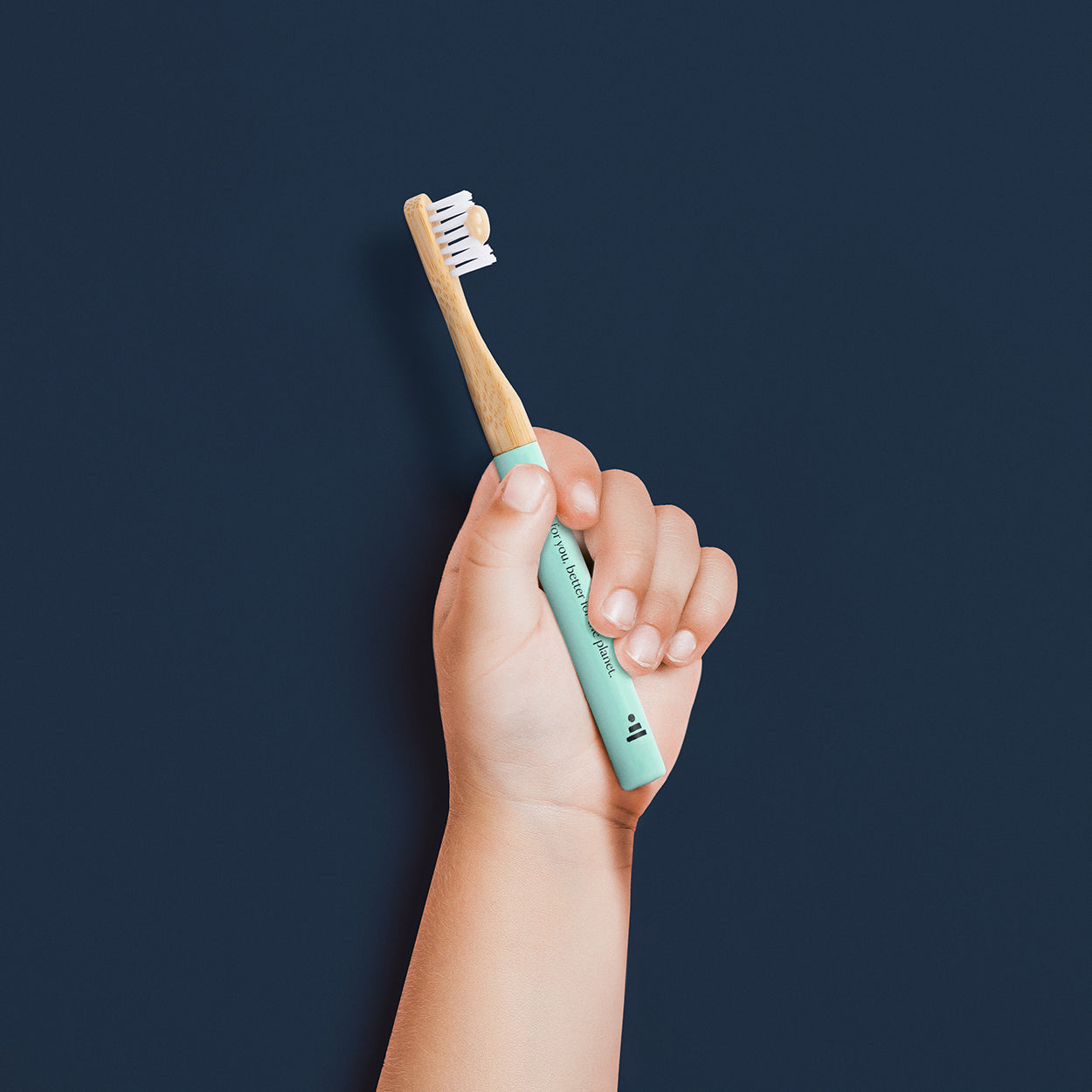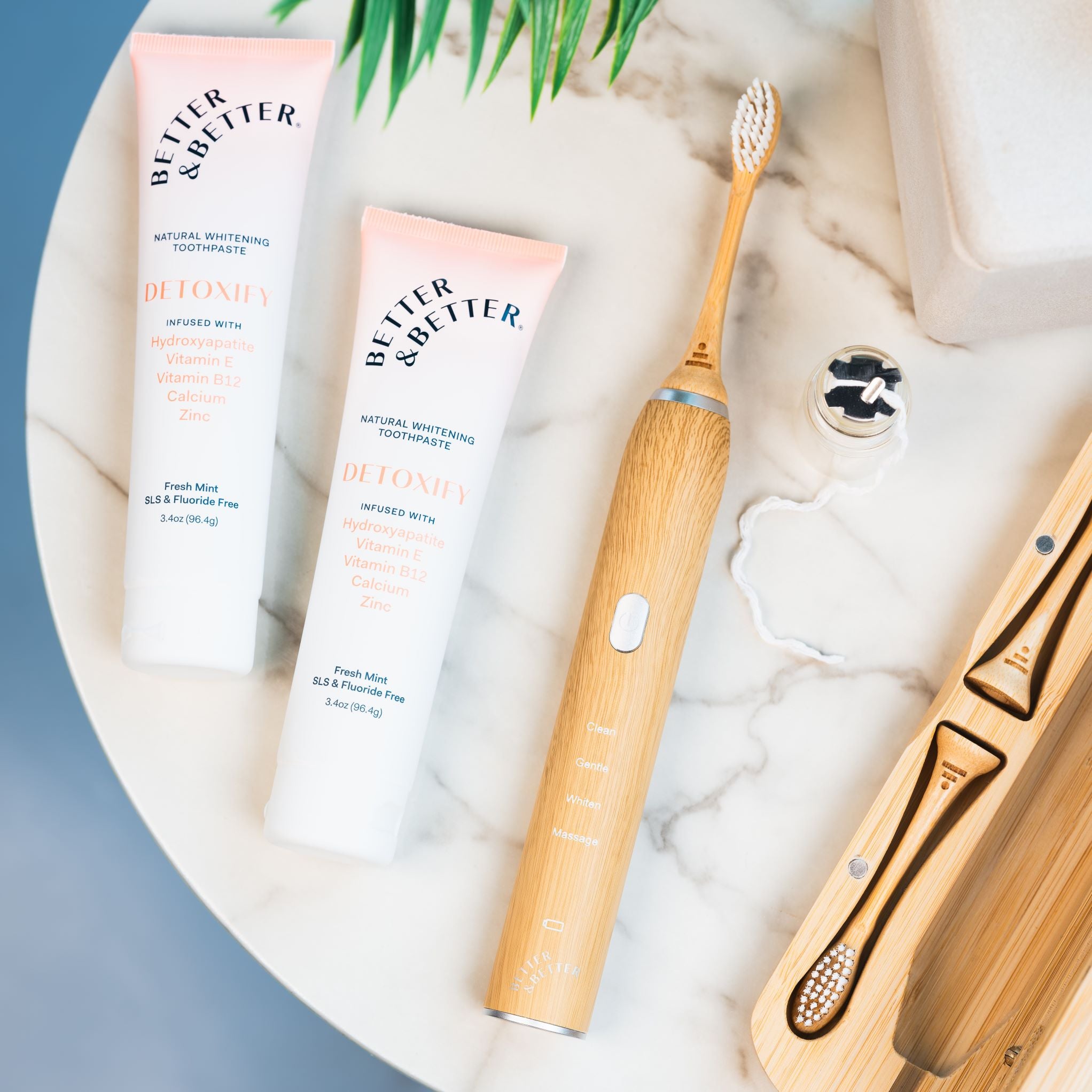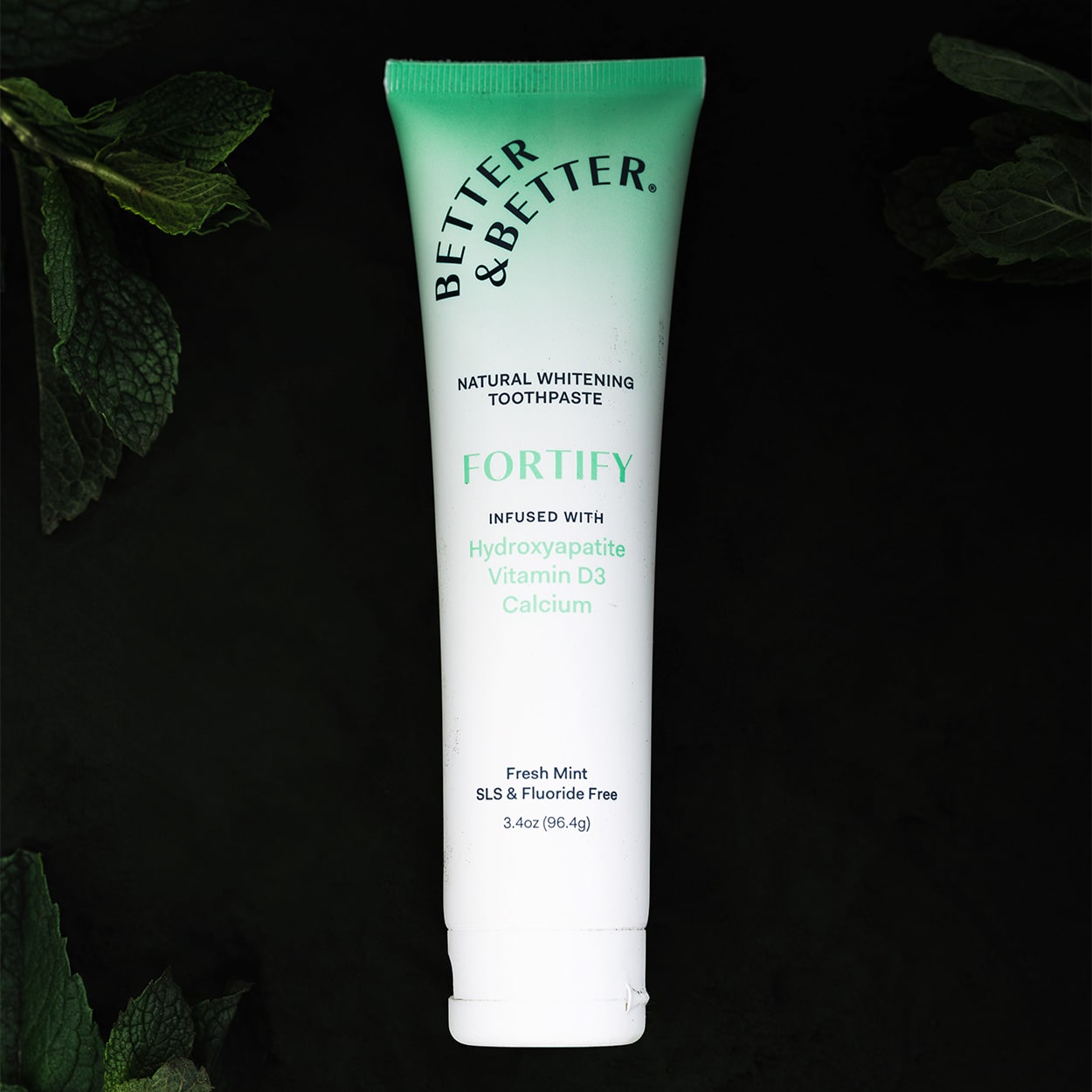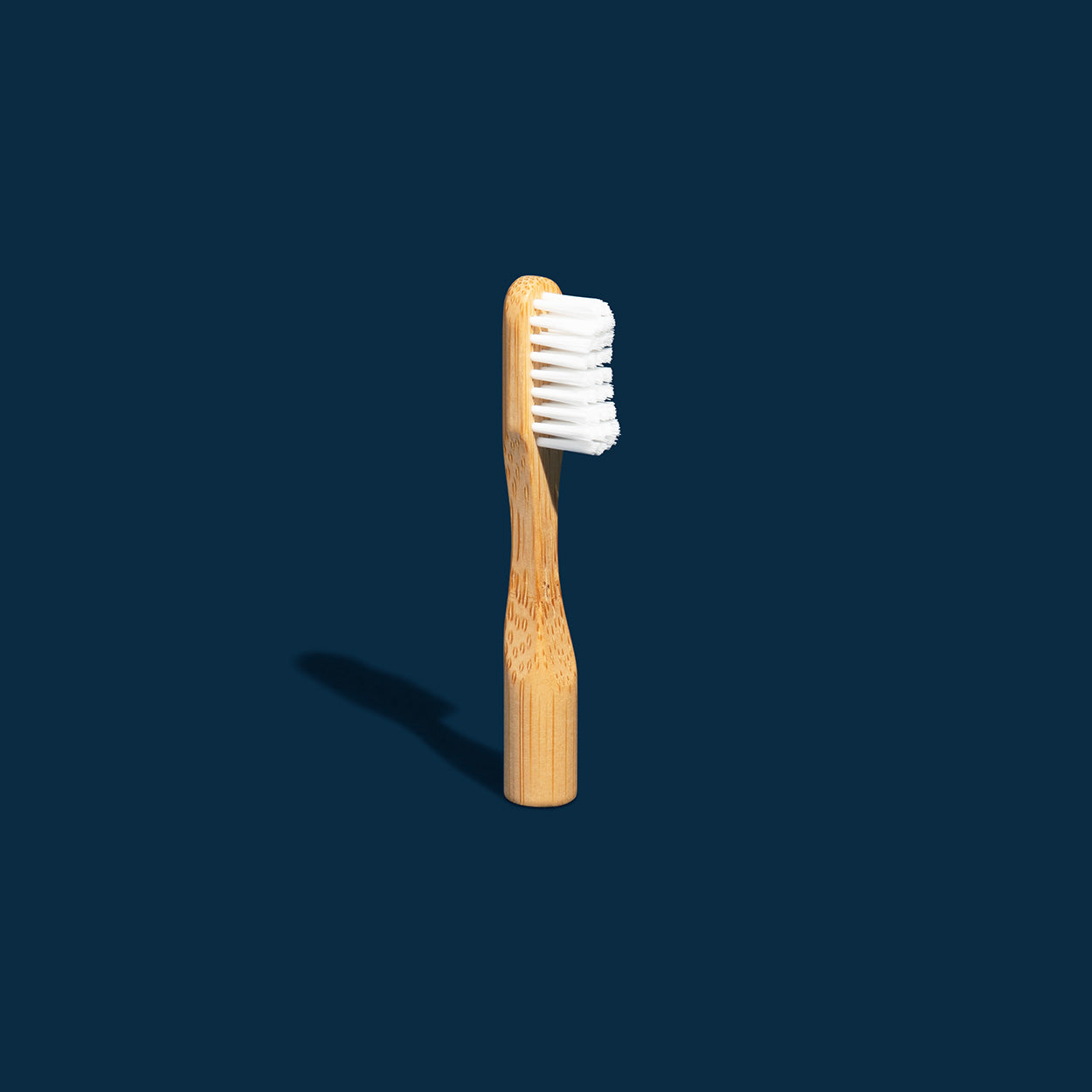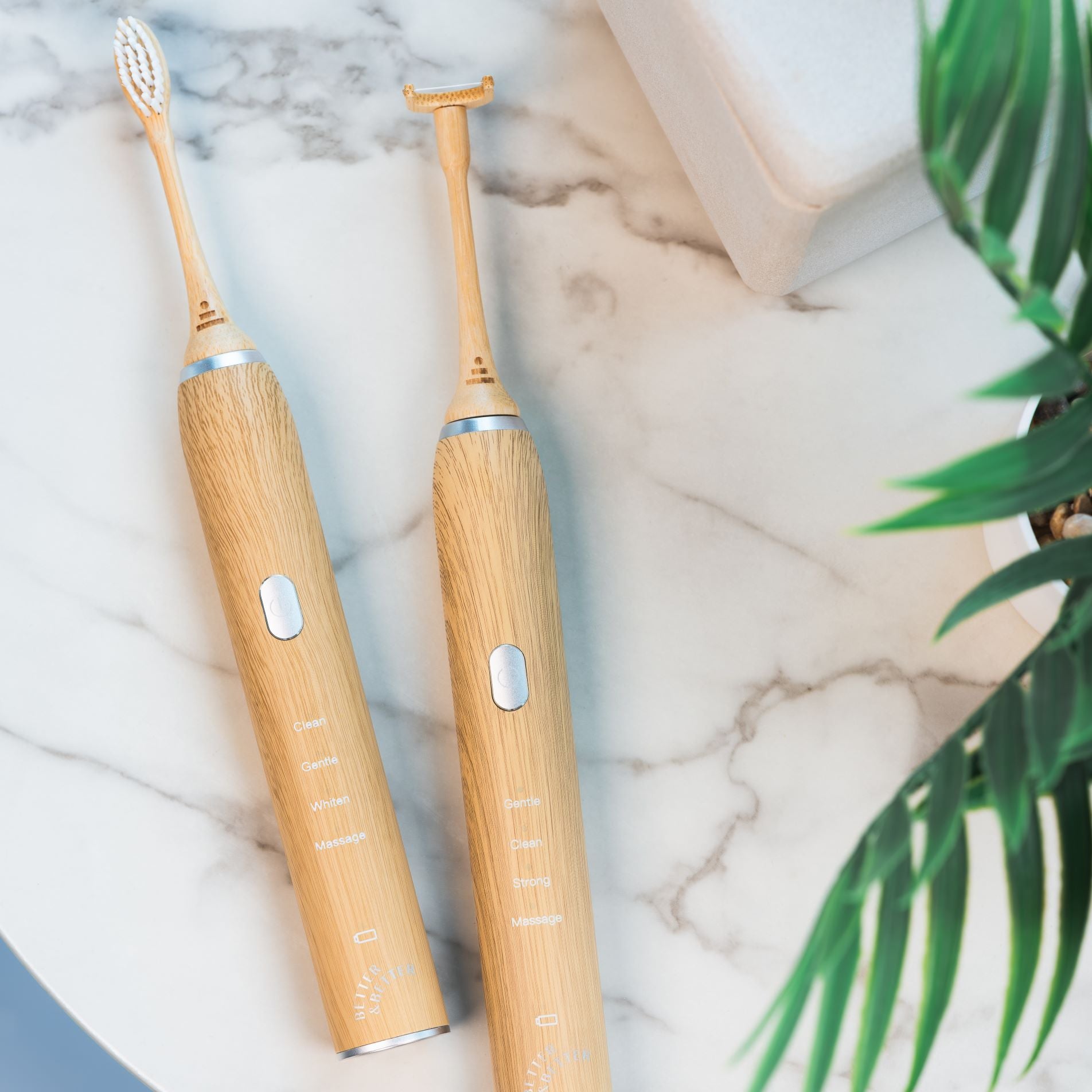When you think of oral health issues, cavities and bad breath are usually top of mind. But there’s another common (and quite serious) condition that can affect anybody, even those with perfect pearly whites: bone loss.
Technically speaking, teeth aren’t bones. When you hear about “bone loss in teeth,” this is actually referring to the alveolar bone that surrounds and supports your teeth. There are several factors that can cause dental bone to deteriorate, from gum disease to vitamin deficiencies.
Dental bone loss is a tricky topic, so we caught up with our resident oral surgeon Dr. Jaclyn Tomsic, MD, DMD, FACS to have her explain the symptoms, causes, outlook, and prevention tips you need to know.
What Exactly Is Dental Bone Loss?
Bone loss in teeth—or dental bone loss—refers to the deterioration of the alveolar bone, which forms your tooth sockets. When this bone shrinks, it causes your gum line to recede, increasing the risk of teeth becoming loose or even falling out.
Normally, your teeth help stimulate bone growth through chewing and biting. But gum disease, tooth extractions, and other oral health issues can reduce this stimulation, causing the bone to reabsorb.
Bone loss can also affect the mandible (AKA jawbone), leading to shrinkage of the jawbone or gums.
Common symptoms of dental bone loss include:
- Loose teeth
- Gaps opening between the teeth
- Shrunken or receding gums
- Bleeding when you brush or floss
- Bad breath
6 Causes of Bone Loss In Teeth
Let’s break down the most common causes of bone loss in teeth:
1. Tooth Extractions
If you get a tooth extracted, the underlying bone might not receive enough stimulation to grow, leading to shrinkage. In the first year after losing a tooth, 25% of the surrounding bone is typically lost, and it will continue to deteriorate over time.
2. Gum Disease
Chronic gum diseases like periodontitis and gingivitis cause the gum tissue to shrink. When this happens, the surrounding bone structure begins to deteriorate.
3. Infections
If your teeth or gums become infected, the inflammation can release toxins that trigger your immune system to attack the bone and cause it to reabsorb or dissolve.
Common causes of tooth infections include cavities, injuries (such as a cracked tooth), and excess plaque buildup along the gum line.
4. Misalignment
If your teeth aren’t aligned properly, the underlying bone may not receive enough direct stimulation to stay strong. Misalignment can be the result of TMJ dysfunction, impacted wisdom teeth, or genetics.
5. Tobacco Use
Tobacco use, whether from smoking or chewing, doesn’t just increase your risk for gum recession and dental bone loss—it drastically increases the damage done and can make treatment more difficult.
Is Bone Loss In Teeth Normal as You Age?
Dental bone loss tends to be more common among older people since the elderly are more prone to periodontal disease. However, Dr. Jacci says it’s not a “normal” part of aging.
Bone loss can affect people of all ages, even if you have perfectly healthy pearly whites. That’s because bone loss can stem from a variety of underlying conditions that are independent of age, such as infections, injuries, and gum disease.
Can Bone Loss in Teeth Be Restored?
“Yes, bone loss around teeth can be restored,” says Dr. Jacci. “There are different bone grafting procedures to assist once bone loss has happened.”
A dental bone graft is an oral surgery procedure that adds density to the jawbone. This might sound scary, but it’s a common and relatively minor procedure.
“Once the patient builds up the bone again, they would be considered for dental implants, which is the replacement of teeth,” says Dr. Jacci.
Of course, the best way to keep your dental bone in good shape is through preventative care, which leads us to our next section.
5 Tips to Prevent Bone Loss In Teeth
The most effective way to prevent dental bone loss is to prevent gum disease—and that comes down to simple preventative care tips. You’ve probably heard these a million times before, but here’s a quick rundown of oral health tips from Dr. Jacci to prevent bone loss in teeth.
1. Brush Twice a Day
Brushing your teeth removes food debris and plaque along your gum line, which is a common culprit of tooth decay. In addition to how often you brush, it’s also important to consider what you brush with.
Dr. Jacci suggests using an electric or sonic toothbrush, which can be more efficient at cleaning your teeth than a manual toothbrush.
When it comes to toothpaste, Dr. Jacci recommends using one with hydroxyapatite, which has been shown to be an effective candidate for bone repair.
“Hydroxyapatite is a natural mineral that helps strengthen bone and replenish tooth enamel,” explains Dr. Jacci.
2. Floss Daily
Flossing clears away 80% of interdental plaque (a sticky film of bacteria that builds up between your teeth). A daily flossing habit significantly lowers your risk of gum disease.
Pro tip: use a biodegradable floss pick—it’s easy on you, and the planet.
3. Use Alcohol-Free Mouthwash
Mouthwash can prevent plaque buildup and eliminate unhealthy bacteria below your gums and on your cheeks and tongue—all of which contribute to periodontal disease. Just make sure your mouthwash is alcohol-free, otherwise it can kill the good bacteria that are essential for your oral microbiome.
4. Get Plenty of Vitamin D
A 2018 study found that a vitamin D deficiency leads to reduced bone density, osteoporosis, the progression of periodontal disease, and causes resorption to occur in the jawbone. The researchers noted that sufficient vitamin D intake plays a key role in preventing dental bone loss since it supports bone and tooth mineralization.
Adults 19-70 should aim to get 15 mcg (600 IU) of vitamin D each day. Specifically, go for vitamin D3 instead of vitamin D2, since it’s easier for your body to absorb.
5. See Your Dentist Every 6 Months
Even if you have a top-tier oral care routine, it’s important to have regular checkups with a dentist to get a more granular picture of your dental health. X-rays and exams can detect gum disease and bone loss before it gets serious.
The earlier you catch the warning signs, the easier it is to treat.
Strong Bones Start with Brushing
Fresh breath isn’t the only reason to brush twice a day. Practicing good oral hygiene is the best thing you can do to prevent gum disease—and, in turn, bone loss.
The toothpaste aisle was long overdue for an upgrade. That’s why we created two kinds of toothpaste to strengthen, restore, and protect your teeth:
- Energy, which is enhanced with 80% of your recommended daily dose of D3—assuming you brush twice a day
- Fortify, which is infused with hydroxyapatite to support the remineralization of tooth enamel (named best toothpaste of the year by GQ)
When you brush with Energy in the morning and Fortify before bed, you get a 1-2 punch for your pearly whites.



